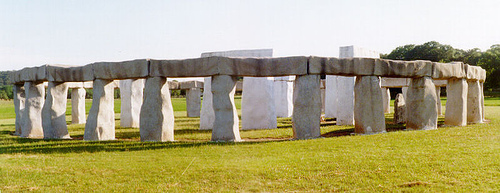How much damage can one sparrow do?
Last year in the Netherlands organizers were preparing a world-record display of cascading dominoes when a house sparrow flew into the room.
The bird knocked over 23,000 tiles before organizers finally resorted to shooting it, setting off a furor among animal-rights activists.
Four days later, a new record was set when 4,002,136 dominoes fell in one continuous cascade.
The bird, stuffed and mounted, will go on display at the Natural History Museum in Rotterdam this November, exactly one year after the shooting.



